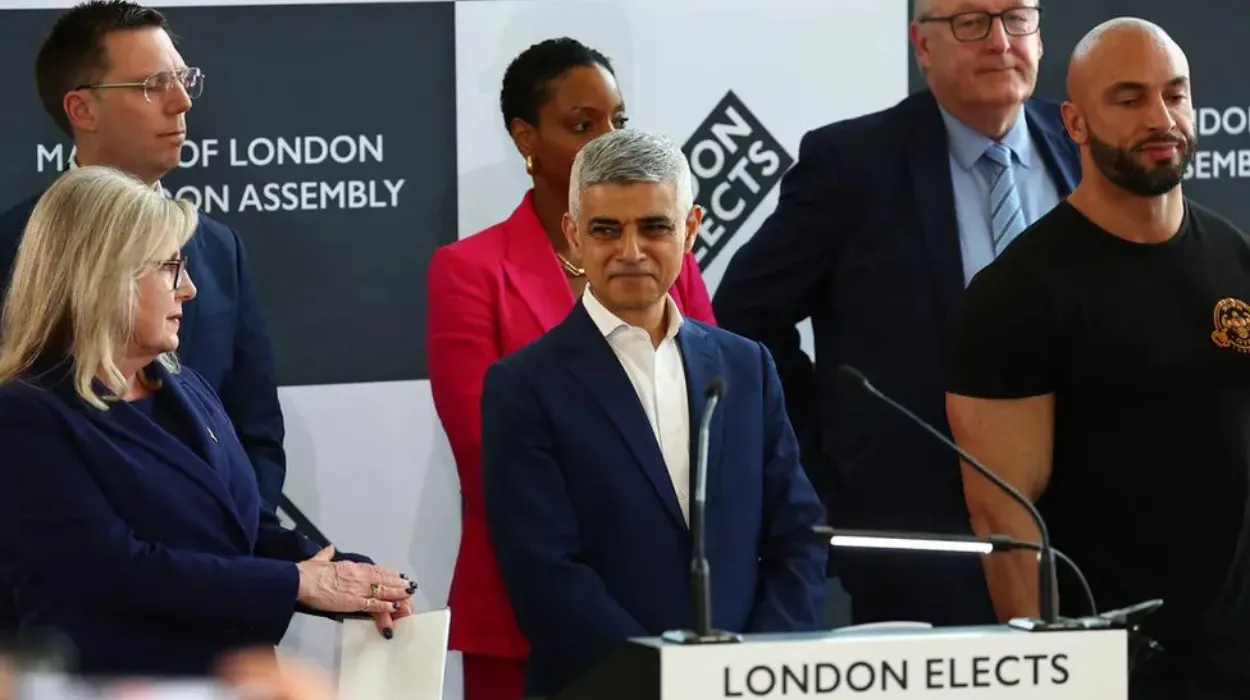London (Parliament Politics Magazine) – Research shows London’s Ulez cut pollution, improved public health, and saved over £37m a year, marking a major success for Mayor Sadiq Khan.
As reported by GB News, Sadiq Khan declared a major achievement for Londoners as studies confirmed the Ulez program had brought significant public health and economic benefits.
What did the study find about Ulez?
A detailed study revealed an 18.5% increase in sick leave across Greater London after the launch of the Low Emission Zone, compared to areas without such initiatives.
An analysis of over ten years of data from Greater and Central London showed that the LEZ, introduced in 2008 and Ulez in 2019, led to a substantial reduction in harmful pollutants.
Economic gains have been notable, with yearly public health savings surpassing £37 million, largely due to a decline in respiratory illnesses and fewer sick days at work.
The data confirmed that London’s measures to improve air quality have been effective in boosting both environmental standards and public health.
During the second phase of the LEZ in Greater London, nitrogen dioxide levels from traffic were reduced by 5.8% and a 9.7% decline in particulate matter was observed.
The Ulez program in Central London achieved a 21% decline in traffic-associated nitrogen dioxide and a 15% drop in particulate matter compared to levels before its implementation. The program came as a result of progressively stricter emission rules for vehicles entering the zones, with daily fees imposed on non-compliant vehicles.
The study also revealed a significant increase in electric and hybrid vehicles in Central London post-Ulez, with 337 additional vehicles licensed compared to surrounding areas.
It shows that the health benefits of these clean air initiatives extend beyond air quality, including a 6.8% reduction in general health problems and a 10.2% decline in respiratory issues.
What did Professor Fichera say about Ulez’s impact on health and productivity?
Professor Eleonora Fichera from the University’s Department of Economics and Centre for 21st Century Public Health highlighted the broader societal consequences of these actions.
She added,
“These policies are not just environmental wins. They’re also reducing labour market absenteeism and improving Londoners’ life satisfaction. Clean air makes for healthier, happier, more productive communities.”
Ms Fichera pointed out the global significance of these findings, stating,
“With the World Health Organisation estimating 4.2 million premature deaths globally each year due to air pollution, these findings signal the urgent need for similar transport policies in other major cities, not just in the UK but around the world.”
What did Dr Habtamu Beshir say about the benefits of a clean air policy?
Dr Habtamu Beshir, leading the research at the University of Bath and now at UCL, stressed the real-world impact in practical terms.
He added,
“Our work shows that clean air policy is smart policy. It protects health, saves money, and enhances quality of life – making the case for clean air initiatives stronger than ever.”
What did Sadiq Khan say about expanding the Ulez in London?
Last year, the London Mayor stated,
“The decision to expand the Ulez London-wide was a difficult one, but necessary to save lives, protect children’s lungs and help reduce the risk of Londoners developing asthma, dementia and a host of other health issues.”
He added,
“The expansion to outer London is already having a significant effect – driving down levels of pollution, taking old polluting cars off our roads and bringing cleaner air to millions more Londoners.”
How much do non-compliant vehicles pay under Ulez rules?
Non-compliant vehicles are required to pay a £12 daily fee for entering Ulez zones in London, with violators facing a £180 fine, which can be lowered to £80 for early payment.
Ulez (Ultra Low Emission Zone) program
- It aims to reduce vehicle emissions in London.
- Introduced to improve air quality and public health.
- Non-compliant vehicles are charged a daily fee to enter Ulez zones.
- Daily charges include £12.50 for cars, £100 for lorries/buses/coaches.
- Vehicles must meet emission standards (Euro 4 for petrol, Euro 6 for diesel).
- Expanded from Central London to cover the entire Greater London area.
- The program promotes cleaner vehicles and reduces pollution.
- Benefits include improved air quality and lower respiratory sickness.


